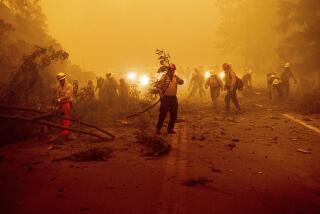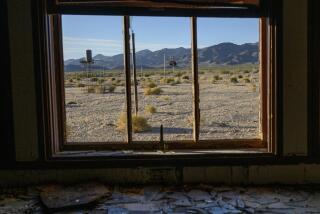Climate change costly for state
Eroding beaches, disappearing snowpacks, subdivisions decimated by wildfires -- climate change in California could be expensive.
For the first time, the costs of global warming’s projected effects in the nation’s largest state have been quantified: About $2.5 trillion of real estate assets in California are at risk from extreme weather events, sea level rise and wildfires, with a projected annual price tag of between $300 million and $3.9 billion, according to a new report, “California Climate Risk and Response,” written by UC Berkeley researchers Fredrich Kahrl and David Roland-Holst.
The final number will depend on how much the Earth warms under various scenarios and whether the nations commit to slashing greenhouse gas emissions.
“This is a good review of existing studies,” said Anthony Brunello, a California Resources agency official. “It assesses the real, comprehensive statewide impacts for the first time.”
Brunello and other California officials are already busy planning a comprehensive “Climate Adaptation Strategy” to commit the state to concrete prevention measures. Six task forces -- covering biodiversity and habitat; infrastructure, oceans and coastal resources; public health; water; forestry; and agriculture -- will release adaptation strategies for public comment next month.
“Our report makes clear the most expensive thing we can do about climate change is nothing,” Roland-Holst said. But he adds, “This is not a doomsday report . . . . If we make the right investments, we can avert much of the damage in any scenario.”
California is also moving to adopt comprehensive regulations to slash its greenhouse gas emissions by 15% below today’s level. But that would only put a dent in the trajectory of climate change, unless dramatic measures are undertaken nationwide and across other continents, according to scientists.
The report covers seven economic sectors and envisions issues such as the collapse of the ski industry, a water-starved hydroelectric system and an increase in warming-related smog.
The research was funded by Next 10, a nonprofit set up by high-tech entrepreneur F. Noel Perry.
--
More to Read
Sign up for Essential California
The most important California stories and recommendations in your inbox every morning.
You may occasionally receive promotional content from the Los Angeles Times.











